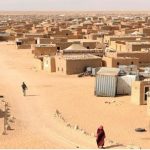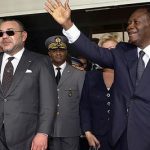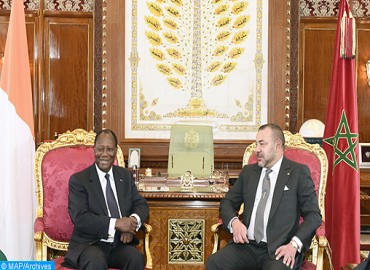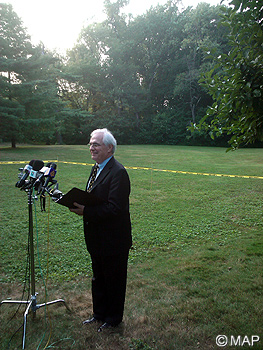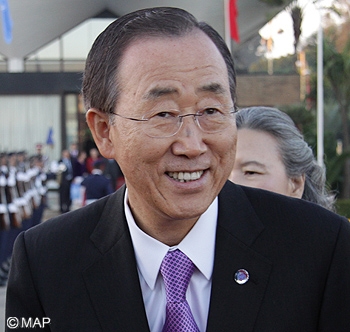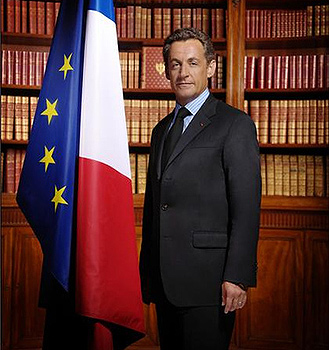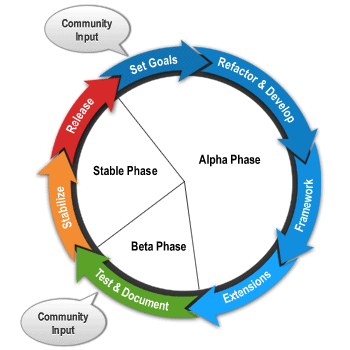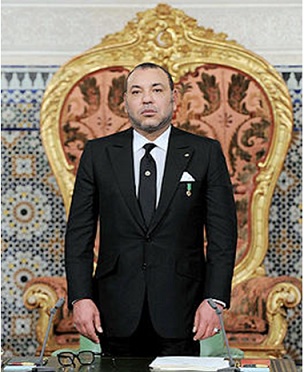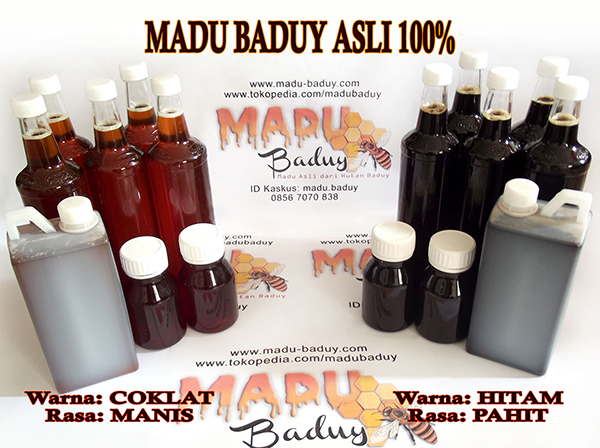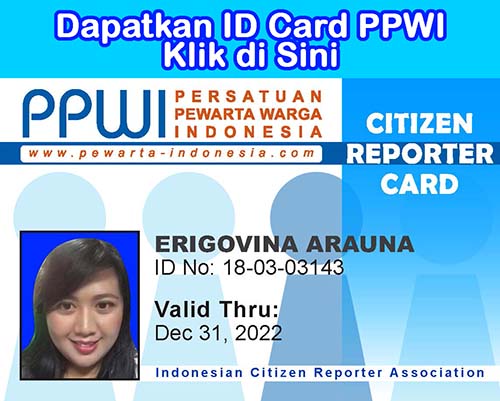End the Long Suffering of the Sahrawi People in Tindouf Camps
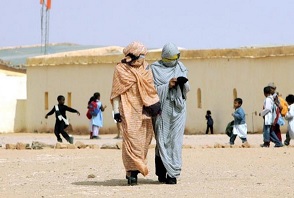
By Sahara Watch Organization
The article is a response to Massinissa Benlakehal’s article published on the New Arab.
PERSISMA – ‘End Morocco’s 40-year occupation of Western Sahara’ by Massinissa Benlakehal is a either a deliberate misrepresentation, or an uninformed attempt to present subject matter with little or no factual research. The article contains distorted allegations, inaccurate historical facts and disregard for accepted international protocols which are woven into an advocate editorial narrative designed to instill bias against one side in favor of the other.
Occupation?
Benlakehal begins by describing the region as – “the African continent’s last colony” – which is neither an accurate nor an official designation, but is often used in biased media campaigns to imply a pre-colonial Sahrawi governmental entity which did not exist at any time before Spanish colonialization. The article goes on to say that the Sahrawi people are subjected to “occupation of their land by Morocco.” This phrase often appears in similar advocate editorials where the writer either deliberately choses to ignore the historical background, or is simply ignorant of the broader historical context and relevant facts of the Sahara issue.
In fact, until Secretary General Ban Ki-Moon’s recent unsubstantiated, inappropriate and internationally criticized use of this word, Morocco has never been referred to as “occupying” the Sahara by any recognized official body of the United Nations. Specifically, there is no report of the UN Secretary General, no resolution of the Security Council, no legal opinion of the UN and no referencing documentation describing Morocco as an “occupying power.” For over thirty years, there has not been any General Assembly resolution on the Sahara issue that has conferred such a status on Morocco. The use of this word was, and continues to be, an obvious attempt to inflame emotions and manipulate facts.
The concept of an “occupying power” is clearly defined in the Hague Regulations of 1907 and in the IV Geneva Convention adopted in August 12th, 1949, stipulating that the notion of an occupying power applies to the occupation of the territory of an existing State during an international armed conflict. Yet, at the time of the Sahara recuperation, there was no independent State other than the Kingdom of Morocco. Specifically, the United Nations describes the Sahara area as “a non-autonomous territory” and includes it in its list of sixteen territories which fall into this category.
History Rejects the Concept of Occupation
Since Spain took over the Sahara in 1884, Morocco had always fought for the reintegration of the territory to Moroccan sovereignty. Historically exerting its rights to the Sahara, as early as 1956 Morocco made formal legal claims to what was then called the “Spanish Sahara” as part of its precolonial sovereign territory. In 1958, a long military confrontation with Spain to regain its southern territories in Sidi Ifni and in the Sahara ended with a defeat by a Spanish-French alliance. Morocco signed the Treaty of Angra de Cintra allowing Morocco to recover a portion of its Sahara territories, excluding Sidi Ifni and the Sahara. Throughout the 1960’s Morocco continued its efforts to recover portions of its territories under Spanish colonial control. The process of restoration began in full-force with Morocco working in good faith, through established international channels, to re-establish its territorial integrity.
When negotiations with Spain failed to produce results, Morocco presented its case to the United Nations Organization which, in response, adopted Resolution 2072 in 1965. This resolution directed Spain to open negotiations with Morocco on “the problems related to sovereignty posed by the two territories” [The Sahara and Ifni]. Sidi Ifni was recovered in 1967. Like his father King Mohammed V before him, King Hassan II was openly active on the world stage affirming Moroccan sovereignty and the right to restore territorial integrity. It is critical to note that there was no intervening “Polisario Front” or so-called “Sahrawi Arab Democratic Republic” claiming territorial rights, independence, or self-determination during this long expanse of time which was continuously marked by Moroccan political and military attempts to recover remaining colonized regions of its precolonial territory.
Predictably, advocate editorials generally misstate the 1975 decision of the International Court of Justice as having rejected both Morocco and Mauritania’s territorial claims. This is a complete distortion of the ruling or at minimum, an elementary understanding of international law. The International Court of Justice clearly states:
“The Western Sahara was not an unknown land, there was loyalty between the Saharawi and sultans of Morocco. There were legal ties between this territory and the Kingdom of Morocco.” (report here).
These historical facts alone reject any notion of the Sahara as an “occupied territory.”
Self-determination to Referendum?
The issue of self-determination is dealt with in two chapters of the United Nations Charter (Chapters XI and XII). Article 73 of Chapter XI refers to the need to assist people in “the progressive development of their free political institutions, according to the particular circumstances of each territory and its peoples and their varying stages of advancement.” Furthermore, the General Assembly identifies four equal and distinct solutions of self-determination without any mention of the mechanism that has to lead to one or the other of the advocated solutions: 1) Independence, 2) Association, 3) integration (resolution 1541), 4) “any other political status freely determined” (Resolution 2625).
Referendum has proved to be inapplicable to the Sahara. It is a mechanism that has already been tested and has proved its inapplicability because the identification process that was carried out over several years was not decisive. The tribal and nomadic aspects of the Sahrawi population and the mismatch between population and territory resulting from these factors make the identification process impossible. The inapplicability of the referendum in the Sahara has been recognized by many UN officials. The Security Council has not made any reference to this mechanism since 2004, but calls instead for a negotiated and mutually acceptable political solution.
Moroccan International Support and the Autonomy Plan
Morocco is actively engaged in all aspects cooperation and transparency with the international community on issues concerning the Sahara. Since 2004, the Security Council has been regularly calling upon “the parties and States of the region to continue to cooperate fully with the United Nations to end the current impasse and to achieve progress towards a political solution.” Responding to this call by the international community, the Kingdom of Morocco initiated a positive, constructive and dynamic process to submit an autonomy initiative for the Sahara within the framework of the Kingdom’s sovereignty and national unity.
Today, the Moroccan Autonomy Plan is recognized by the United Nations and supported strongly by the United States, France, The Arab League (except Algeria) and most recognized countries. Though regularly misquoted that “more than 80 countries recognize the Sahrawi Arab Democratic Republic,” this number is actually thirty-two. Indeed, there were 80 countries to recognize the “SADR” in 1990, however after the introduction of the Moroccan Autonomy Plan, the number has declined by over 60%. Today seventeen countries in Africa, two countries in Asia, and thirteen countries in Latin America and the Caribbean recognize RASD. No North American or European countries are included in this list.
Moroccan international relations continue to remain stable and strong. Unfortunately, Benlakehal mistakenly states, “Last week, the Moroccan government suspended contacts with several European Union institutions, after the EU decided in December to cancel their farm trade agreement with Rabat.” The EU did not decide to cancel their agreement with Rabat; it was a decision of the European Court of Justice of 10 December 2015. The European Council disagrees with the General Court’s judgment and an appeal has been brought.
“The EU maintains its view that the agreements between Morocco and the European Union do not violate international law, and it is for this reason that an appeal has been lodged. The agricultural agreement, meanwhile, remains in force.” said High Representative/Vice-President Federica Mogherini. Statment here.
Aid to Tindouf Camps
The harsh and very sad conditions the Sahrawi people endure in the camps established by the Polisario Front are truly deplorable. As is routinely pointed out, “the food aid is often irregular and generally insufficient. It only covers one-third of nutritional requirements.” Again, it is important to look to the facts. The international community has been extending financial support to the Tindouf camps since 1975. According to the OLAF (European Anti-Fraud Office), the donations of the European Commission’s humanitarian aid department (ECHO) to the Tindouf camps refugees between 1994 and 2004 amounted to € 105 million on the basis of a population of 155,000 persons, as estimated by Algerian authorities.
“Algeria and Polisario has refused despite repeated calls from the UN’s refugee agency and Union Nations Secretary General, to identify and record Tindouf populations” said OLAF. The report drafted by OLAF investigation team asserts that large parts of the assistance and aid were diverted by Algerian senior officials and leaders of the Polisario Front. report here
Economic & Infrastructure Development, Natural Resources, Representative Elections
The United Nations’ Consultative Opinion regarding natural resources in the region stipulates that the dividends from natural resources must be invested in improving the living conditions of the local population. The Polisario continues to distort the facts around natural resources in the Sahara.
According to CORCAS, the Royal Advisory Board for Saharan Affairs, MAD 495.8 billion has been invested in the Sahara agricultural sector including programs to to improve irrigation, rural development programs to promote agricultural production, infrastructure, geodesy and topography and related support services. The Polisario claims phosphates as the principle motivation for Morocco’s presence in the Sahara, but this is basically irrelevant since 75% of the world’s phosphate reserves are found in the north of Morocco in Khouribga. Annual production capacity in the Khouribga mines is 19 million tons per year with planned capacity increases. Potential of the Fos-Boucraa site remains insignificant in comparison.
As for the fishing industry, employees in this sector are overwhelmingly native to the region. Investments of MAD 4 billion, excluding government improvements to the harbors have allowed the construction of two training facilities, search and rescue equipment, a 190 ship fishing fleet and 5,866 craft fishing boats, along with improved living and working conditions for craft fishermen. Estimated total investment into the fishing fleet registered in the area since 1977 amounts to MAD 1,445 million.
Social protection programs and economic initiatives have consistently placed the Sahara in the highest ranks in the country in terms of human development. Today, 97% of children are enrolled in school with this number stabilizing at 78% in secondary levels as compared to 14% in 1976. In a 20 year period, poverty in the region decreased by 66% or two times that of the national level. The region now has two regional airports, four maritime ports, 10,000 km of roads, and an 80+% connected utility rate for the homes and businesses in the region. Hospitals, cultural centers, libraries and recreational facilities, have been constructed for the benefit of the citizens. Housing is built and available for any Sahrawi wishing to return to Morocco. Additionally, King Mohammed VI recently announced the launch of projects in the region worth an estimated MAD 140 billion (approximately US $ 15 billion).
On September 4, 2015 the Sahara participated in the regional elections with great enthusiasm. The participation rate of the elections stood at 53.67% nationwide, but neared 80% in the Sahara region. King Mohammed VI opened the fall parliamentary session saying,
“I was indeed proud to note that, in the last elections, there was a high voter turnout in our Southern provinces,” said the King who deemed this high turnout as“further democratic proof that the sons and daughters of the Sahara are deeply committed to their country’s territorial integrity and political system, and that they are keen to be effectively involved in the nation’s institutions.”
Sahara Watch Organization is a non-governmental organization who defends the sovereignty and territorial integrity of Morocco. The views expressed are the writer’s own.

